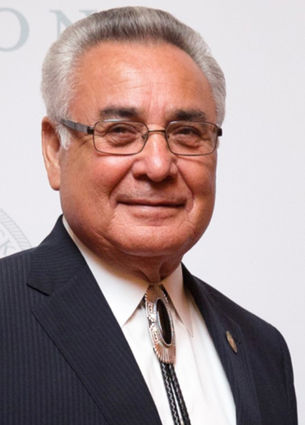Senate fails to reach full vote for Tribal Labor Sovereignty Act
Last updated 5/21/2018 at 2:10pm
WASHINGTON, D.C.-On April 16, the Senate failed to come up with the necessary votes to proceed with a full vote on the Tribal Labor Sovereignty Act, an amendment to the National Labor Relations Act that would include tribes in the same exempt category as all other government employers in the United States. The Senate voted 55-41 in favor of moving forward with the legislation, but this tally fell short of the 60 votes needed.
"Obviously, this is disappointing," said Jefferson Keel, president of the National Congress of American Indians (NCAI). "From the comments we heard on the Senate floor today, we still have much work to do to educate Congress about the fact that tribal sovereignty is not a conditional proposition. However, I am encouraged that we won a majority of votes, and that our issue made it to the Senate floor. We will be back."
The purpose of the legislation is to fix a problem created by the National Labor Relations Board's decision to single out Indian tribes as the only form of government in the United States subject to the National Labor Relations Act. Over 90,000 other units of government in America, who employ over 21 million Americans, are not subject to the NLRA. The Tribal Labor Sovereignty Act is a crucial step for Congress to ensure that the United States consistently respects the sovereignty of tribal governments.
Keel continued: "Everyone knows that the U.S. Constitution set up our federal system of government, but far too few know that the Constitution also recognizes the sovereignty of Indian tribes. The reason is found in our history. Our lands and resources were stolen despite the guarantees of treaties and federal laws, and when there was little left to take from us, our rights have simply been ignored. This is the dark history we have inherited. However, tribes have struggled and succeeded in establishing the federal policy of tribal self-determination. Economic development is taking hold in many places, and our government structures are growing ever more effective and secure.
"Tribal sovereignty is not an abstract principle. Tribal self-government is critical for us to maintain our cultures and our viability as distinct groups of people. We want our children to grow up with the same traditions and values that we grew up with. These are reasons that everyone in America can understand because these are the basic values of cultural survival that we all share just as much as our need to breathe the air."
According to NCAI Executive Director Jacqueline Pata, "The Tribal Labor Sovereignty Act builds upon a principle that has been long established by Indian tribes across the country: when tribal sovereignty is respected and acknowledged, successful, accountable and responsible governments and economies follow. This is not merely a legal issue but a moral imperative of protecting and defending the sovereignty of America's Indian tribes, and guarding against any discrimination against those tribes. There is no good reason to treat tribal governments in any way different from other governments. Federal law should uphold, not undercut, parity of treatment and equality of opportunity for tribal governments."







